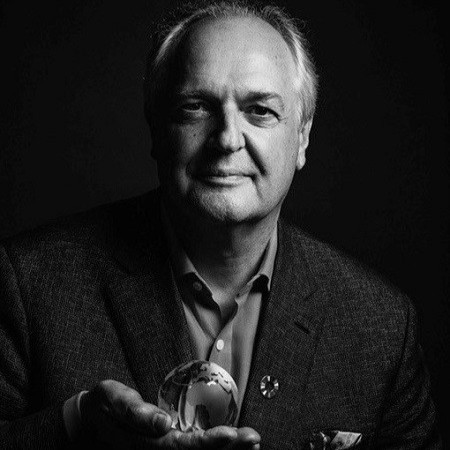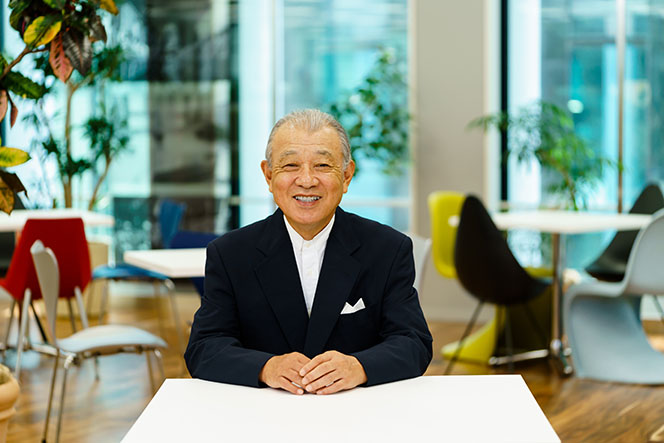The Valuable 500 has reached its goal of getting CEOs of 500 international organisations to commit to putting disability inclusion on their board agendas; making it the world’s biggest CEO collective for disability inclusion.
Since The Valuable 500 was launched at the World Economic Forum Annual Meeting at Davos in 2019, some of the most recognisable businesses from across the world have joined the campaign for inclusion. The membership includes 36 of the FTSE 100 companies, 46 of the Fortune 500 and 28 of the Nikkei. Companies include Allianz, Apple, BBC, BP, The Coca-Cola Company, Daimler, Deloitte, EY, Google, Microsoft, Nestle, P&G, Mahindra & Mahindra Ltd, Prada, Shell, Sky, Sony, Twitter, Unilever, Virgin Media, Verizon and Vodafone.
Sectors pushing for disability inclusion through the campaign include the finance; food and drink; hospitality; big tech computing and telecoms; and legal industries. The organisations supporting The Valuable 500 have a combined revenue of over $8 trillion; and over 20 million employees across 36 countries. This demonstrates the weight of The Valuable 500’s reach and influence.
LONG WAY FROM INCLUSION
“I am delighted to be part of The Valuable 500 as we hit this important goal. Since the launch of #Valuable at One Young World in Bogota in 2017 and the inception of The Valuable 500 at Davos in 2019, the campaign’s ambitious goal to fundamentally transform the global business system and fight for an equal and inclusive society has made incredible progress,” stated Paul Polman, Chairman of The Valuable 500 and former CEO of Unilever. “The commitments made by the 500 global companies over the course of the last two years have already made a tangible difference. And I greatly look forward to playing a role in activating this network and accelerating disability inclusion worldwide.”
However, while disability inclusion is now on the business agenda, we have a long way to go before true disability inclusion is achieved, according to The Valuable 500. Its new research carried out with Tortoise Media, ahead of Global Accessibility Awareness Day on the 20th May, reveals that there are no executives or senior managers who have disclosed a disability in company reporting by the FTSE 100; while only 12% report on the total number of their employees who are disclosed as disabled.
ACCESSIBILITY STANDARDS
The average representation of people with disabilities amongst employees as reported by FTSE 100 companies currently stands at only 3.2%; compared to the percentage of the wider population with a disability, which sits at 18%. Additionally, only 5% of FTSE 100 companies have issued board level statements on disability as part of their leadership agenda, confirmed the research. With digital accessibility more important than ever, almost 1 in 3 companies (29%) are failing to meet website accessibility standards; potentially missing out on a $13 trillion market.
“With Tortoise’s research today showing that only a small minority of the FTSE 100 are actively tackling and addressing disability inclusion at a leadership level; there is plenty more business leaders globally can and must do to better serve the 1.3 billion people worldwide with disabilities,” added Polman.

DISABILITY TARGETS
While the research shows stark findings on disability inclusion across the FTSE 100, it also indicates that this is set to change. Around 16 out of the 100 companies have set credible targets related to representation of people with disabilities; and more set to put these targets in place. This includes 37 companies within the FTSE 100 setting up employee resource groups, or equivalents, to specifically support people with disability.
All members of The Valuable 500 have made a public commitment to advancing disability inclusion within their organisations; whether it be employee, customer or supply chain related, positive change is already in action. Their commitments include the appointment of advisory boards or specialists, as pledged by Sky, Lenovo and Pladis; setting up a global employee network as initiated by Allianz; increased representation, as championed by the BBC; advertising campaigns featuring people with disabilities, as launched by Kurt Geiger and Tesco; adaptive product ranges promoted by Tommy Hilfiger, PVH Corp and UGG; and employment opportunities, as pioneered by companies including Unilever, IHG and AutoTrader. Major technology and communications companies including Verizon, Adobe, GMSA and Microsoft have already taken steps to improve digital accessibility in their products and wider industries.
BUSINESS DISABILITY SUPPORT
Now that the goal of 500 organisations has been reached, The Valuable 500 has launched phase 2 of the campaign. This will see the 500 major organisations work together to make change happen for disability inclusion in business. The Valuable 500 has also received the largest ever investment into disability business inclusion, with The Nippon Foundation investing $5 million to catalyse new Valuable 500 initiatives.
“I am very happy to share this significant moment in time as Global Impact Partner of The Valuable 500. The Nippon Foundation has been dedicated to supporting persons with disabilities by providing opportunities to access higher education; with the hope of making them leaders in their own countries for more than 50 years,” stated Mr Yohei Sasakawa, Chairman of The Nippon Foundation.
“However, through these experiences, I am fully convinced that supporting minority disability groups and reaching out to public institutions or governments will not bring about effective social change. Unless the majority of the society changes, the world will never change. The challenge of the Valuable 500, which involves major global corporations, will mark a new phase in disability support from a business perspective. I am hoping this community will be utilised to the fullest extent and help to promote disability inclusion in the business environment, so that the whole of society will get one step closer to a truly inclusive one that everyone can participate in, either with or without disabilities.”

COLLECTIVE ACTION
Commenting on achieving today’s milestone, Caroline Casey, Founder of The Valuable 500, said: “Today we have broken the leadership silence on disability inclusion and put this on the business leadership agenda. We have now built this unique community and are launching phase 2. For me, the collective activation and innovation of this community for systemic business change has been a lifetime ambition. With the scale of the Valuable 500, change is possible because now we have the scale, the perfect time and the multiplier effect of this critical mass; it’s all about intention.”
Adding to her comments, Vladimir Cuk, Executive Director of the International Disability Alliance, stated: “The Valuable 500 collective reaching its goal marks an important moment for the disability inclusion community globally. Although the disabled community still encounters many barriers, the important work of Caroline and the 500 business leaders who have joined her in committing to the campaign has already made a difference for millions of employees and consumers across the world; and will continue to do so as the campaign progresses. I am thrilled to have been involved in The Valuable 500’s achievements as it hits this historic goal; and look forward to being involved in the progress the campaign will undoubtedly continue to make through phase 2.”
PHASE 2 LAUNCH
As part of phase 2, 13 Iconic Leaders across The Valuable 500 will co-fund, co-build and co-test the programmes and solutions; using their industry experience to help catalyse progress for the entire community. These leaders are Allianz, BBC, Deloitte, EY, Google, Mahindra & Mahindra Ltd, LSEG, Omnicom, P&G, Salesforce, Sony, Sky and Verizon. The CEOs of all of these companies are committed to working together to lead by example; and transform the business system for disability inclusion.
Joining these 13 iconic leaders and the community today as the 500th company, Apple has become the Iconic partner for Inclusive Design. This will help ensure that The Valuable 500 can drive the highest levels of inclusive design and share that knowledge within the community of members; and beyond. Leveraging their Self-ID work, Google and Deloitte will be working together to carry out an internal census playbook that will enable signatories to understand disability within their workforce; and any barriers that currently exist to inclusion within the organisation.
INCREASING DISABILITY REPRESENTATION
Salesforce and Mahindra & Mahindra Ltd will facilitate a jobs portal made by people with disabilities to ensure greater access to opportunities and more diverse workforces. P&G and Omnicom will conduct a brand audit, to help signatories gain insight from disabled consumers, driving innovation opportunities. EY and Sky will be supporting the build out of a global research panel of 5,000 people with disabilities to give direct insight on the workings of the 500 companies.
Allianz and The London Stock Exchange Group will contribute to The Inclusive Index Programme, to influence the indices to incorporate disability measures into their criteria. Sony will be supporting the increased representation for disabled people both on and off camera. Verizon will largely be focused on inclusive technology and equipping a pipeline of next-gen talent with accessibility skills; whilst the BBC is supporting Valuable Virtual – to enable the community to share their ideas virtually.





































